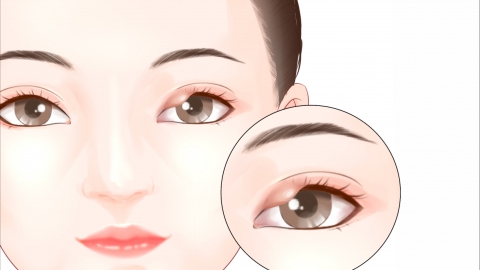How to treat swelling in the double eyelid area
Generally, swelling of the double eyelid may be related to eyelid edema, allergic reactions, eye trauma, blepharitis (meibomian gland inflammation), conjunctivitis, and other causes. It is recommended to seek medical attention promptly and follow the guidance of a physician for treatment, which may include general care, medication, and other therapies. A detailed explanation is as follows:

1. Eyelid Edema
Excessive water intake at night, insufficient sleep, eye fatigue, or emotional fluctuations may lead to poor blood circulation in the eyes, causing swelling. It is recommended to maintain adequate sleep and avoid excessive water intake at night.
2. Allergic Reaction
During an allergic reaction, the body releases inflammatory mediators such as histamine, leading to congestion and swelling of the eyelid skin and surrounding tissues. It is recommended to use mild, non-irritating eye care products and avoid allergens such as dust mites, pollen, and cosmetic ingredients.
3. Eye Trauma
When the eye is subjected to external impact or friction, it can cause eyelid tissue damage and rupture of capillaries, resulting in swelling and pain. Personal protection should be strengthened to avoid accidental eye injuries.
4. Blepharitis (Meibomian Gland Inflammation)
Blepharitis is usually caused by bacterial infection. The infection leads to inflammation and swelling of the glands, causing pain. It is often accompanied by symptoms such as localized warmth, redness, and tenderness. Under a doctor's guidance, medications such as ofloxacin eye drops, chlortetracycline eye ointment, and tobramycin eye drops may be used for treatment.
5. Conjunctivitis
Conjunctivitis is commonly caused by viral or bacterial infections. Inflammation of the conjunctiva causes redness and swelling of the conjunctival blood vessels, irritating the eyelid and causing swelling and pain. Symptoms typically include red eyes, tearing, and a foreign body sensation. With a doctor's advice, medications such as acyclovir eye drops, erythromycin eye ointment, and compound neomycin sulfate eye drops may be used for treatment.
Maintaining good daily habits, a balanced diet, and moderate exercise are important for maintaining eye health.




